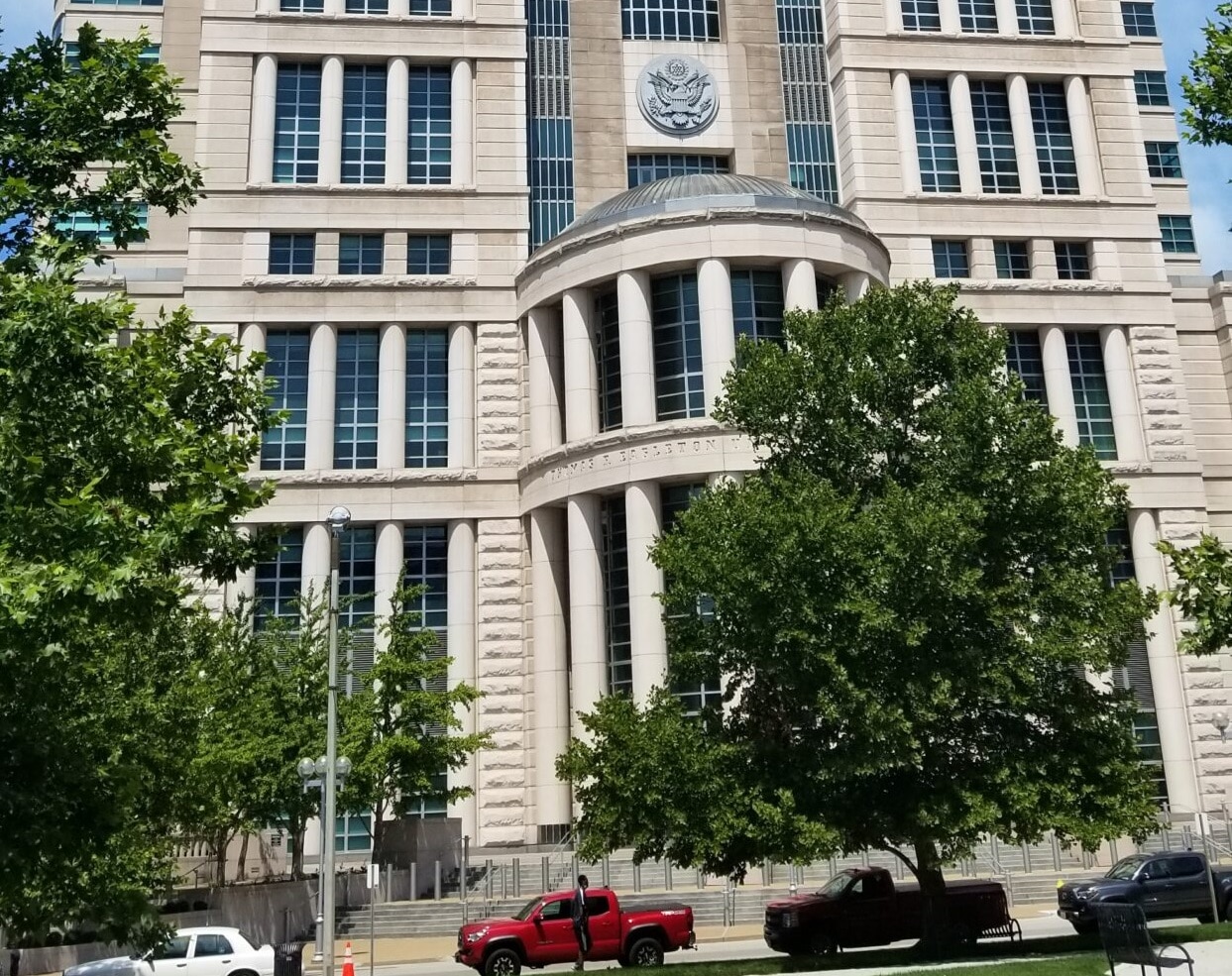DES MOINES, Iowa (CN) — An Iowa city did not violate the constitutional rights of a street preacher when authorities removed him from a festival after vendors complained his proselytizing was offending customers, the Eighth Circuit Court of Appeals held Thursday.
Cory Sessler sued the city of Davenport and city three police officers after he was forced to leave a street festival in 2018, claiming they violated his constitutional free-speech and free-exercise rights.
A federal court in Davenport dismissed Sessler’s complaint, granting summary judgment to the city and local police. Sessler then appealed to the St. Louis-based Eighth Circuit.
A divided three-judge panel of the Eighth Circuit affirmed the trial court on Thursday, agreeing that the city did not violate Sessler’s free-speech rights when it ejected him from a private festival on city streets. It also agreed with the lower court that qualified immunity protected the officers from individual claims.
The decision for the panel majority was written by Senior U.S. Circuit Judge Michael Melloy and joined by Circuit Judge Lavenski Smith, both George W. Bush appointees. Circuit Judge Ralph Erickson, a Donald Trump appointee, dissented.
The underlying incident in the case happened in 2018, after a downtown Davenport promotional group obtained city approval for a festival. Chain-link fences were erected around the perimeter to control crowds, but no admission was charged.
Sessler entered the festival area with his family and friends and began preaching with the aid of a microphone and amplifier. He also held up signs warning festivalgoers that they were "destined for a burning hell" if they engaged in activities like same-sex relations or sex outside of marriage, court records state.
Three Davenport police officers approached Sessler. They told him the festival was a private event and that some attendees took offense to his preaching.
Under threat of arrest, Sessler was eventually ordered to move outside the fenced-in festival grounds. Sessler then sued, arguing his constitutional rights were violated when city authorities kicked him out.
In its ruling on Thursday, the circuit court majority agreed with the city, finding that restrictions imposed during the street festival were “content neutral and reasonable" and that the three officers therefore did not act unreasonably.
Critically, "it was not clear at the time of the events in this case whether the fenced-off City streets and sidewalks remained a ‘traditional public forum’ or whether they served as a less-protected ‘limited public forum,’” Melloy wrote for the majority opinion. “Further, no reasonable trier of fact could conclude from the summary judgment record that the officers’ actions were anything but content neutral or that such actions were unreasonable or otherwise restricted or diminished Mr. Sessler’s access to his intended audience."
"In short," Melloy concluded, "the officers in the present case acted within a gray area and transgressed no bright lines clearly established by existing caselaw."
In a dissent, Circuit Judge Erickson noted that complaints about Sessler mainly concerned the content of his preaching — not other factors like volume.
“Importantly, one of Sessler’s colleagues offered to turn down the group’s amplification — an offer that was not accepted by [police officer Greg Behning],” Erickson wrote. “Instead, Officer Behning stated that the event’s organizer was unhappy with the atmosphere Sessler’s group created and that attendees and vendors had taken offense to Sessler’s message, including telling people they were going to hell.”
In a concurring opinion, Circuit Judge Smith stressed that even if police officers had violated Sessler’s constitutional rights, those rights were not clearly established under existing precedent from the Eighth Circuit and other federal courts.
Jason O’Rourke, an attorney with the Davenport-based firm Lane & Waterman who represented the city in this case, said the city and the police officers named in Sessler’s complaint were pleased with the Eight Circuit's decision.
“We have consistently maintained that the City’s and the Officers’ actions in this case were lawful and appropriate, and these decisions verify that position,” O’Rourke said a statement on Thursday.
The Florida-based American Liberties institute, which represented Sessler, did not immediately respond to a request for comment.
Subscribe to Closing Arguments
Sign up for new weekly newsletter Closing Arguments to get the latest about ongoing trials, major litigation and hot cases and rulings in courthouses around the U.S. and the world.









